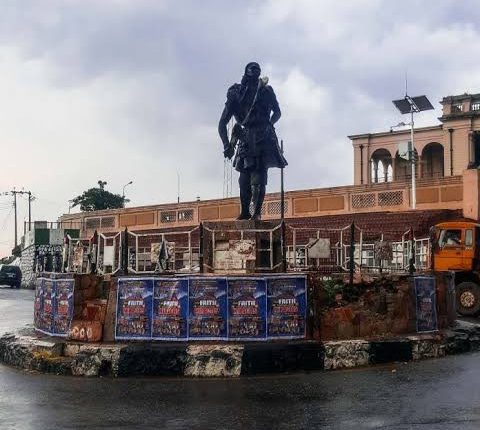Ibadan’s loss, USA’s gain | Barometer
Afortnight ago, the eminent city of Ibadan celebrated 200 years of its founding with cakes and ale. Up till the 70s and 80s the city continued to inspire romanticists, evoking poems from two of Nigeria’s pioneer literary quartet who neither hailed from the place nor were commissioned to do it. Alas, with many other historically powerful towns and city-states in Nigeria, Ibadan shares a common tragic destiny. Following the decline of the Oyo Empire, Ibadan rose to prominence in Yorubaland, displaying masterful political and military organisation, and actively trying to fill the vacuum of leadership created by Oyo’s retirement. Ekiti, having none of that, together with the Ijesha, took up arms against Ibadan under the aegis of ‘Ekiti Parapo’.

Where Ekiti’s amalgamated forces risked Fulani incursion from Ilorin, Ibadan’s Balogun Ajayi Ogboriefon gave the invaders the hairy eye, and at the battle of Ikirun, fondly called the Jalumi war, they repelled a combined Fulani attack from Ilorin alongside Ekiti and Ijesha. It is difficult to divine how the war would have ended had the British not stepped in, but step in they did, and a stalemate was declared. Ibadan was absorbed into the Southern Protectorate and that sad reality continues to haunt it, as it continues to haunt many erstwhile kingdoms in Nigeria.
The ripple effect of that annexation was a complete cessation of the individual growths of many prominent cities and kingdoms in what became Nigeria, including the Bini Kingdom to the South, and Kano to the North. Cities that should and could have grown autonomously, and perhaps into greatness, had their destinies truncated and tied to other cities under a disoriented and misshapen Nigeria, and the process of growth was subsumed and weakened under a nation not as ambitious as they were.
By contrast, the United States of America recently celebrated 244 years of independence, only 44 years older than Ibadan, and the difference, alas, is telling and troubling. The USA, although once a colony of Britain, was not forced into the culturally diverse co-existence that Nigeria’s multiple ethnic groups were forced into. Consequently, it grew rapidly upon independence in 1776 where Ibadan’s potential lay dormant, bickering needlessly with other tribes over resources.
So far, the various governments of Nigeria have remained hostile to calls for restructuring. Even though restructuring would not mitigate the harm done to Ibadan under the British and Nigeria, it would have at least freed the city to breathe better and aspire more realistically and ambitiously under a favourable political arrangement. Despite the avalanche of reasons, Nigerian governments are unwilling to give in. Maybe if cities like Ibadan had remained independent and grown at their own chosen speed and trajectory, as the United States did over 244 years, the collapse of Oyo Empire would have birthed a greater and more powerful empire in Ibadan.

...For the latest news update, Subscribe to our Whatsapp Channel (Click Here) and join our Telegram Update Group (Click Here)

You can also advertise your Product and Services on our page for more patronage
Contact us today by sending your Stories, Articles, Events, and Eyewitness Reports for publications as well as products and services for advertisement to westerndailies2018@gmail.com or WhatsApp (+2348058448531) for more information






